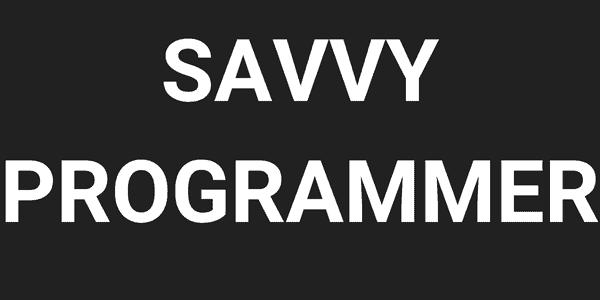Becoming a software developer by adopting the formal way of obtaining a college degree requires tedious and extensive coursework. And a major proportion of your college education is related to mathematics.
Regardless of the country or university, a Computer Science or Software Engineering undergraduate degree has the following compulsory math courses:
- Calculus
- Discrete Mathematics
- Differential Equations
- Linear Algebra
- Probability and Statistics
- Numerical Methods
Math is not easy, and not everyone is made to tackle complex mathematical problems with ease. But does this mean they cannot be good software developers?
This article discusses four key aspects related to the topic:
- What Math Skills should every Software Developer have?
- What Software Jobs Require Minimal Math?
- What Software Jobs Require Advanced Math
- Logic-building should be your priority!
What Math Skills Should Every Software Developer have?
As a software developer, you are expected to tackle problems that require critical thinking to find meaningful and scalable solutions. Will you be working with numbers for this? Yes!
Programming involves complicated logic building, detailed analysis, and substantial problem-solving. All these skills are enhanced by carefully understanding the basic level of mathematics.
A software developer is expected to have a good grip on the following mathematical concepts:
- Understanding of Basic Arithmetic
- Ability to understand and visualize problems through Graphs
- Fundamental knowledge of Statistics
- Basic Geometry
Don’t worry! You don’t need to master these things, and they are not very technical either.
Basic arithmetic includes knowledge of working with numbers and mathematical operations such as addition, subtraction, multiplication, and division.
Graphs are a pretty good way to grasp a hidden insight to tackle a problem. A software developer should at least know how to read graphs. Moreover, simple concepts of statistics, such as taking averages, should be known to all programmers!
Even if you know only the basics of math, there are plenty of job options!
What Software Development Jobs Require a Minimum Amount of Math?
Not all software jobs are all about solving problems that deal with numbers. Yes, they might, at some point, need you to do some calculations, but they seldom require an in-depth numerical analysis.
Most software engineers who work on the product development side of the industry stay at a safe distance from complicated mathematics. These jobs include the following:
- Front-End Engineering
- Web Backend Engineering
- Mobile Application Development
- Database Engineers/Architects
- DevOps and Deployment
- Software Quality Assurance
Even though these jobs require a minimal amount of complex math, a very good understanding of related languages and technologies is much needed!
Front-end developers usually work with what we see on the screen. This requires a good understanding of UI conventions and languages such as HTML, CSS, and JavaScript.
Backend developers build the logic behind the applications, and hence, good knowledge of programming languages such as JavaScript, Python, or C++ is needed.
Mobile developers work with technologies such as Flutter, Swift, and React Native. On the other hand, Database engineers use languages such as SQL and related tools.
Technical skills easily overshadow your theoretical knowledge of mathematics.
The software industry seeks out individuals who can get the work done, and not those with bookish knowledge of math or computer science. Hence, the main focus of a software developer should be to polish and enhance their technical skillset!
However, the vitality of math cannot be undermined because of its sheer importance in other trending domains of computer science!
What Software Development Jobs Require a Great Deal of Math?
The world has observed a massive change in the dynamics of software development with the release of smart and artificially intelligent systems. Businesses around the world are relying on data to maximize their gains, and the gaming industry has thrived with better-quality games!
These are all the marvels of substantial and very exhaustive mathematics in the background. Hence, the following jobs require a strong knowledge of advanced math:
- Machine Learning Engineers
- Artificial Intelligence Researchers
- Data Scientists and Data Engineers
- Data Analytics
- Game Development
- AR/VR Development
All artificially intelligent technologies that emerge nowadays, leaving users in awe of their exclusive features and making our lives easier, are products of really complicated mathematics. Hence, ML and AI engineers should have a formidable grip on math, especially linear algebra and vector mathematics.
Data engineers and data scientists require depth in their studies of statistics and probability, as they are used to predict future values using regression, exploratory data analysis, and prior probabilities.
Games make our lives engaging and fun, and math makes these games more engaging and fun!
Math has the highest level of importance in the domain of game development. Everything in the video games we play for fun is developed with complicated calculations.
Game development requires a substantial amount of math to:
- Adding details, such as gradients and textures, to enhance the graphics.
- Create virtual environments that replicate the real world.
- Apply the concepts of physics to make the interactions between objects realistic.
This requires extensive knowledge of computer graphics, vector mathematics, linear algebra, calculus, and applied physics. All of them incorporate hard college-level mathematics.
But should you invest a lot of time mastering the concept of mathematics? Well no!
Logic is the way to go!
Coding is all about finding the most optimal solutions through different strategies, such as divide and conquer, recursion, and dynamic programming. In short, software development is nothing but logic at work!
A good software developer will always work actively to keep their logic-building concepts up to date, and this requires continuous grind and practice!
You can use the following platforms to practice your logic-building skills:
- Leetcode (http://www.leetcode.com)
- HackerRank (http://www.hackerrank.com)
- Code Wars (http://www.codewars.com)
Being a software engineer without mathematics is quite possible!
Even though some domains do require advanced knowledge of math other than those knowledge areas, being a software developer working with application developments requires little to no awareness of complex math!




